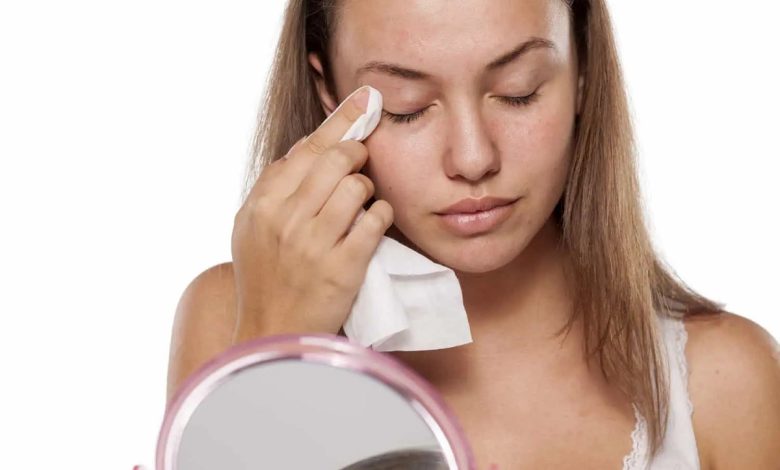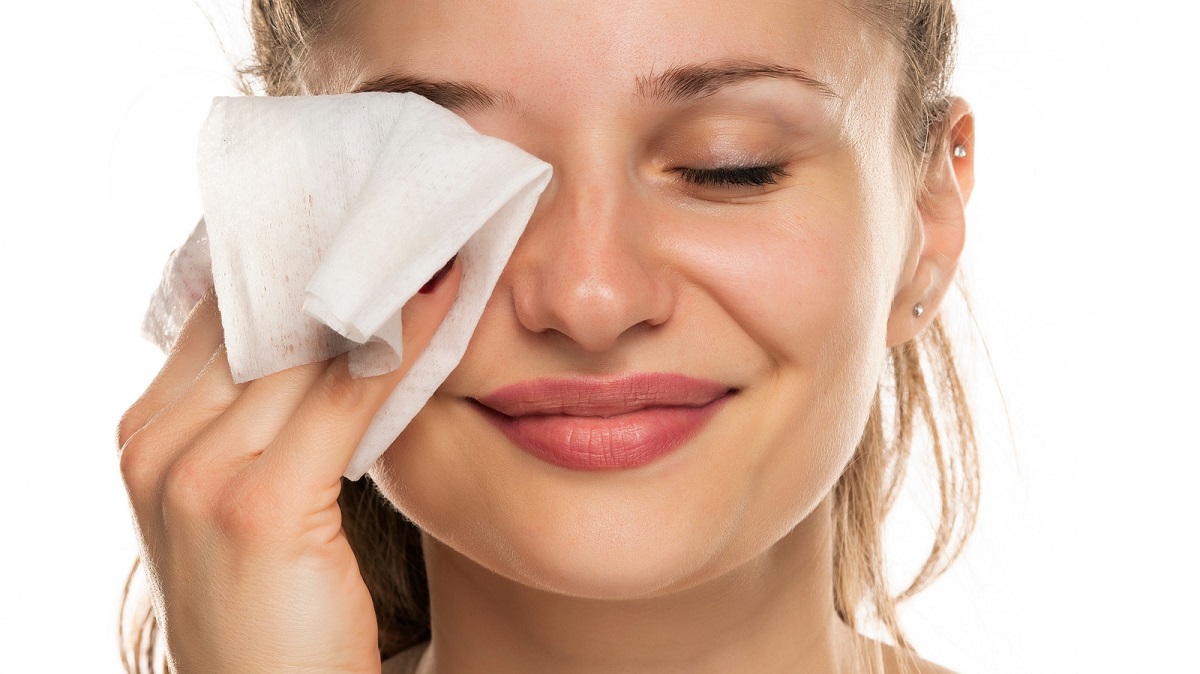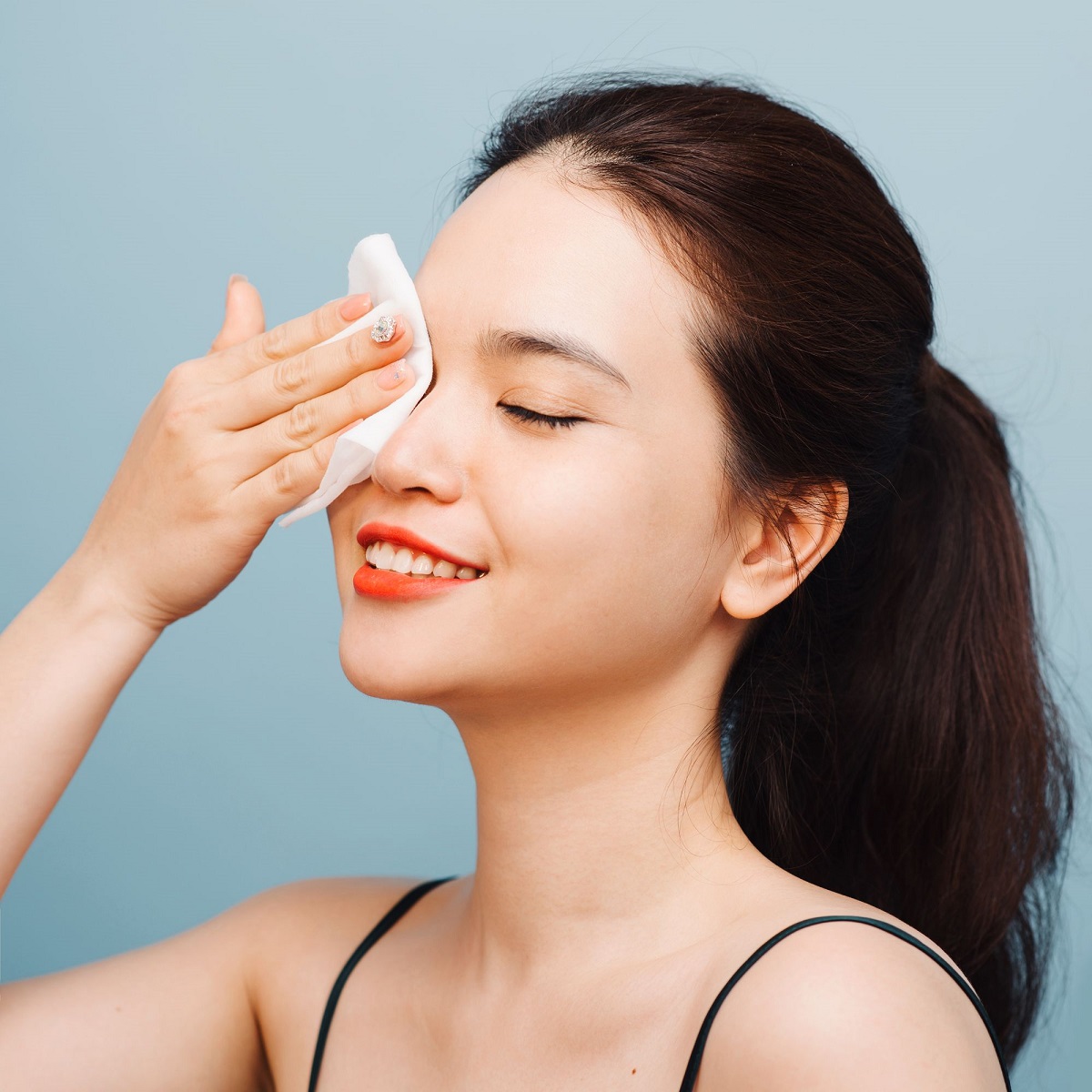Makeup Wipes: Pros And Cons Of Using Makeup Wipes

Makeup Wipes: Makeup wipes are convenient, one-time-use cloths pre-soaked in a cleansing solution designed to remove makeup, dirt, and oil from the skin without the need for water.
They are often seen as a quick fix for a clean face at the end of a long day. While makeup wipes have gained popularity for their ease of use, they come with both benefits and drawbacks that users should be aware of.
Pros Of Using Makeup Wipes
Convenience And Ease Of Use: Makeup wipes are ideal for those who are always on the go or too tired for a full skincare routine. They don’t require water, making them perfect for quick touch-ups or makeup removal during travel or outdoor activities. A single swipe can remove surface dirt, oils, and makeup, making them a time-saving solution.
Portable And Travel-Friendly: Unlike liquid cleansers or face washes, makeup wipes are easy to pack and carry. They come in resealable packs, keeping the wipes moist and ready for use, which makes them especially helpful for vacations, flights, or long commutes.
Cost-Effective: While high-end cleansers can be costly, many makeup wipes are relatively affordable. They are often cheaper than traditional face cleansers, making them an accessible option for many consumers. Additionally, the wide availability of makeup wipes means they can be found in most drugstores and supermarkets.
No Rinsing Required: One of the key appeals of makeup wipes is the lack of need for rinsing. They work well when access to water is limited, such as during outdoor activities like camping or after a workout at the gym.
Gentle For Sensitive Areas: Most makeup wipes are formulated to be gentle on delicate areas such as the eyes and lips, where using a regular facial cleanser might be irritating. They can remove waterproof mascara or long-lasting lipstick without the need for harsh rubbing.
Cons Of Using Makeup Wipes

Not A Complete Cleanser: Although makeup wipes can remove surface grime, they don’t provide a thorough cleanse. Dermatologists like Dr. Marie Jhin warn that wipes only break down makeup and dirt on the surface, leaving behind residue in the pores. This leftover buildup can lead to clogged pores, breakouts, and dull skin over time.
Lack Of Deep Cleansing: Facial cleansers, when used with water, penetrate deeper into the skin’s layers, removing bacteria, pollutants, and oils from pores. In contrast, makeup wipes only provide a superficial clean. Many experts suggest that wipes be used as a first step in a two-step cleansing process, followed by a deep cleanser to truly clear out the skin.
Irritation And Dryness: Many makeup wipes contain alcohol, fragrances, parabens, and other harsh chemicals that can dry out or irritate sensitive skin. Frequent use of wipes with such ingredients may strip the skin of its natural oils, leading to irritation, redness, or even contact dermatitis.
Potential For Chemical Exposure: Some wipes contain preservatives like parabens and ingredients such as phthalates, which have been linked to potential long-term health concerns. These chemicals help extend shelf life but may harm skin health in the long run, especially for those with sensitive skin or allergies.
Environmental Concerns: Makeup wipes are typically single-use and contribute significantly to landfill waste. Most of them are made from non-biodegradable materials, exacerbating the environmental impact. Although some brands now offer biodegradable options, the majority of makeup wipes still contribute to environmental pollution.
Risk Of Residual Build-Up: Failing to properly cleanse the skin after using wipes can lead to the accumulation of chemical residues on the skin. This can cause long-term skin issues such as blocked pores, uneven texture, and even premature aging.
The Best Way To Use

Experts recommend incorporating makeup wipes into a double-cleansing routine. This method involves first using a wipe to remove the bulk of makeup, dirt, and oil, and then following it up with a deep cleansing face wash to ensure a thorough clean. For example, after using a wipe to remove makeup, washing the face with a mild cleanser will ensure that the pores are free of any remaining residue.
Conclusion
Makeup Wipes, Makeup wipes offer undeniable convenience, especially for those moments when a full skincare routine isn’t possible. However, they should not replace traditional cleansing methods. While they are useful for quick touch-ups, travel, or emergencies, they don’t offer the deep clean that facial cleansers and water provide. Additionally, the potential for skin irritation, chemical exposure, and environmental harm should be considered when deciding how often to use makeup wipes. Balancing the use of wipes with a thorough skincare routine can help maintain healthy, clean skin without the drawbacks.
Also Read:
From Ancient Egypt To Brotherly Love: The Origin Story Of Mascara
Two Toxic Chemicals In Cosmetics And Beauty Products
7 Easy Ways To Thicken Eyebrows Naturally
How To Do Makeup Like A Pro – The Best Tips You Should Follow




